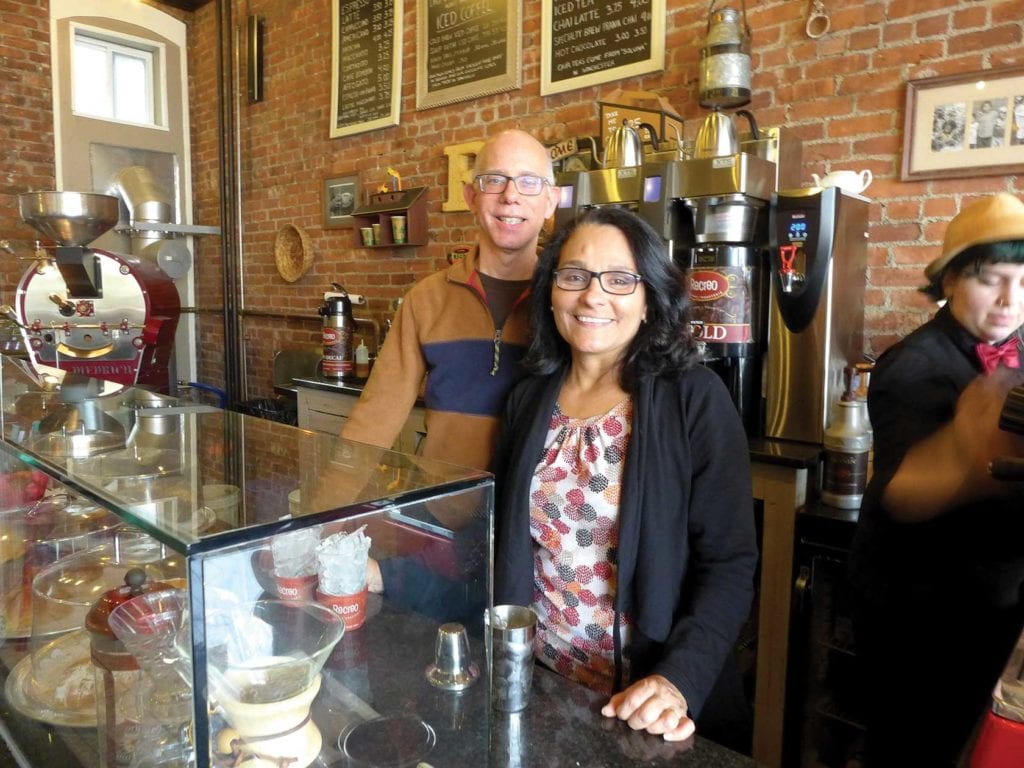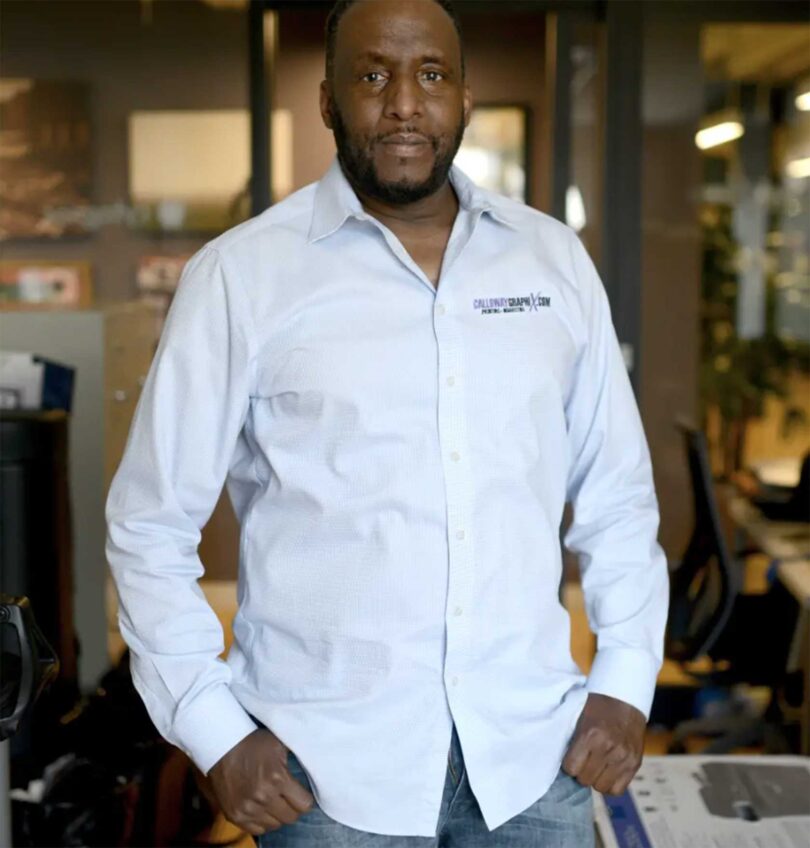
From November through March every year, 380,000 pounds of coffee is harvested, picked, processed and sun-dried by more than 200 Nicaraguan workers at the El Recreo Estate Farm in Jinotega, Nicaragua.
Shipped in containers, some of that coffee makes it way to the U.S., and to Boston, where local entrepreneurs Hector and Miriam Morales roast the beans and sell by the cup at their two Recreo Coffee Roasterie locations in the city.
The Rainforest Alliance-certified coffee farm in Nicaragua is owned by the Ferrey-Machado family and managed by Leana and Carlos, Miriam’s parents. Although the family in Nicaragua has been producing coffee for exportation since 1972, the Morales family has been roasting and selling Recreo’s single-origin coffee locally since 2011.
El Recreo Estate Farm is not just a coffee producer, but a humanitarian organization providing permanent and temporary work for local residents and elementary schooling, technical training and health services for employees and their families for over a decade.
“The motivation to launch Recreo Coffee Roasterie was to support the school and clinic we have on the farm,” says Morales. “We use a portion of our revenue to support those social programs.”
With 33 percent of Recreo Coffee Roasterie revenue going back to the farm, Morales adds, “We’re not a business making a business — we’re a business making a difference.”
Business partners and spouses, Miriam and Hector met in Boston where they both went to college and attended church. Hector, a hydrologist, and Miriam, an industrial engineer, worked in their respective fields for some time before they became ministers for the Church of Christ for 22 years.
They left the ministry in 2011 to continue the coffee legacy of the farm, first by selling bags of unroasted coffee to other roasters and then, after teaming up with a roaster, selling them to customers at farmers markets throughout Massachusetts.
“I had no experience selling coffee,” says Morales. “We just Googled coffee roasters in the U.S., went down the list and cold-called for three months, every day.”
Their clientele grew large enough for the two to acquire their own roasting machine and open a brick-and-mortar cafe in West Roxbury in 2015. They opened their second location in June 2017 at Boston City Hall.
The baristas at both locations don hats made of burlap, the same material Recreo’s bags of coffee are shipped in, along with red bow ties and black button-down shirts. “I wanted them to be more elegant-looking than the typical barista,” says Morales.
The Diedrich IR-12 roaster that Hector operates at Recreo’s West Roxbury cafe was a $30,000 investment. It roasts 25 pounds of coffee at a time and stays busy for at least 25 hours a week, roasting beans for both shops.
Besides retail, Recreo offers coffee wholesale to other restaurants, cafes and catering companies. Each part of the business is nearly matched in revenue. “We’re not as big as we want to be in wholesale right now,” says Morales, “so we’re focusing on growing that.”
The Recreo farm has the capacity to produce 10 containers of coffee per year, each carrying 38,000 pounds of coffee.
According to Morales, the coffee is picked up in New York, transported to a warehouse in New Jersey and from there, distributed to other roasters. Recreo Roasterie takes in 30 bags at a time from the warehouse to Boston, each bag carrying 153 pounds of coffee.
“We’re truly farm-to-cup. No one else touches the coffee until we sell it,” says Morales.
Recreo Coffee Roasterie usually goes through seven bags of coffee per week, transporting only what is needed from the warehouse to keep the coffee as fresh as possible. “Coffee is affected by humidity and coldness. The warehouse conditions keep it preserved,” says Morales.
Over the course of a year, four containers from Nicaragua are shipped to the U.S., while the remaining six containers are sold to an exporter in Nicaragua.
Morales says they’d like to get to a point where they’re able to sell more of the containers themselves through retail and wholesale. However, the competition is fierce.
“You can get coffee everywhere and a lot of people want it for a low price,” says Morales. “But we’re a single-origin, environmentally sustainable and socially responsible specialty coffee. We can’t compete with Dunkin Donuts prices.”
As with any business, there are highs and lows, and through the low points, Morales says what motivates the couple is “knowing we’re making a difference. This isn’t something that we’re just putting back into our pockets.”
Morales tells the Banner that Recreo is looking into opening a third cafe location to continue contributing to its social missions.
“My goal is to open a boarding school for girls at the farm,” she says. “Usually girls, by the time they’re 13, go to live with men and start a family, but I want to help break that cycle.”
Some customers in Boston have had an opportunity to travel to the Recreo farm in Nicaragua to see for themselves how the coffee they drink is really made, the human labor that contributes to it and the social programs their dollars help maintain. Hosted by the Ferrey-Machado and Morales families, Recreo’s yearly “origin trip” is a $500, four-day immersive experience. Due to current civil unrest, however, Morales says they have put the trip on hold, at least temporarily.
Creating a community is an integral part of the Recreo business model, the owners say. “We are very family oriented,” Morales says. “We’re very close to our customers and the people who work with us.”






